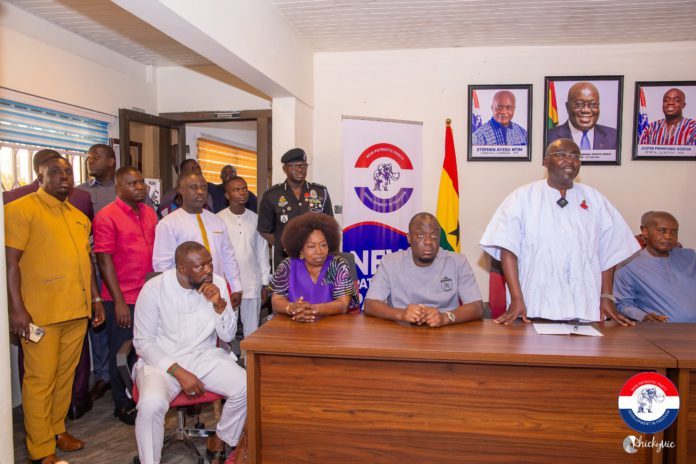IMANI Africa’s latest edition of social media analysis spanning from February 11th to February 26th, 2024, has revealed intriguing insights into public sentiment towards the two major political parties in Ghana, the New Patriotic Party (NPP) and the National Democratic Congress (NDC).
The survey is a comprehensive study of over 10,000 tweets, Facebook posts, TikTok and YouTube videos, Instagram posts, podcasts, and news websites.
The report suggests that the leader of the NDC, John Mahama, has experienced a reduction in negative sentiments even though his reach on non-social media web sources has seen a significant drop.
Below are some details of the report:
Performance Comparison: Analyzing the social media performance of the presidential candidates, it’s observed that former President Mahama experienced a reduction in negative sentiments by about 8.27% during the period.
However, his reach on non-social media web sources saw a significant drop of 6.78%. On the other hand, Vice President Bawumia saw a notable 14% increase in social media mentions, accompanied by a significant rise in negative mentions by 7%.
Growing Interactions: The report also establishes the fact that despite a few fluctuations, the number of interactions is steadily growing.
The NDC is gradually expanding its audience on social media, with more mentions and interactions growth compared to NPP/Bawumia-related content, although the absolute numbers still favor the NPP.
Stable Positive Sentiment: Despite the period under review, the positive public opinion and sentiment remain stagnant at 10%, with an equal proportion between NPP and NDC mentions.
Both parties registered exactly 10.22% positive sentiment out of the total sentiments analyzed, indicating no significant upsurge in positivity triggered by any events or pronouncements from either candidate.
Rising Negative Sentiment: However, negative sentiment towards both party candidates increased during this period.
Negative mentions of the NPP experienced a higher percentage increase, rising from around 21% to just over 28%, while negative sentiment towards the NDC saw a more modest increase of approximately 4%.
This suggests a general increase in negativity towards both parties, with the NPP bearing the brunt of growing negative mentions.
Impact of Ministerial Reshuffle: Despite a ministerial reshuffle during the period, it did not significantly alter the level of positivity towards the NPP but rather triggered negative sentiments overall.
This raises questions about public faith in politicians and their ability to influence public opinion positively.
Dominance in Social Media Mentions: Despite the challenges, the NPP maintained its lead in social media mentions.
The ministerial reshuffle did not diminish the NPP’s dominance in mentions and social reach, with more commentators scrutinizing their policies and the messaging of their presidential candidate compared to the NDC.
The analysis underscores the dynamic nature of public sentiment on social media and its potential impact on political discourse and electoral outcomes.
As Ghana’s election approaches, understanding these trends becomes increasingly vital for political strategists and candidates seeking to engage effectively with the electorate.
For insights into Mahama and Bawumia’s current Social Media Performance vs Previous Period Under Review, insights on NPP’s continued dominance of headspace on social media, interactions and discussions and on Associated Keywords related to the campaigns as a worldcloud please go to here.
The next sentiment report will also gauge the public’s response to the SONA.For a ‘live’ graphical representation of this episode, please go here.

